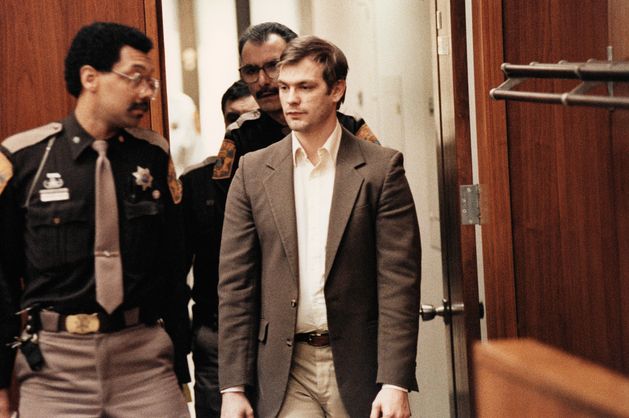Entertainment
‘My Son Jeffrey’ review: Dahmer docuseries is one for the incurable ghouls in the audience

Netflix appeared to have picked the story clean in 2022 with Ryan Murphy’s bafflingly popular miniseries Dahmer – Monster: The Jeffrey Dahmer Story and the docuseries Conversations with a Killer: The Jeffrey Dahmer Tapes, which followed a month later.
Before these, there had been more than a dozen television documentaries about Dahmer, stretching back as far as 1992. But the blood-soaked Dahmer bandwagon grimly rolls on.
Paramount+ jumps aboard with the four-part My Son Jeffrey: The Dahmer Family Tapes (now streaming), which was originally produced for the US streamer Fox Nation.
The unique selling point of this one, supposedly, is that it features the previously private prison phone calls between Dahmer and his father Lionel, who recorded them for… well, what? Posterity maybe, or perhaps as material for his book A Father’s Story, published in 1994?
In any case, the tapes take up relatively little of the first two episodes (watching four hours of this in a single sitting would have been too much of a bad thing), and the snippets of conversations we hear are far from compelling.
The producers make the usual mistake of these series: they think the ramblings of a sick and twisted killer who cannibalised and had sex with some of his victims are inherently fascinating, rather than simply repellent.
Lionel’s calls seem aimed solely at finding out what role he may have unwittingly played in his son becoming what he became; it’s as if he’s seeking private absolution.
Take the tapes out of the equation and what we’re left with is just another rerun of an already exhausted tale, no better, no worse and no more worthwhile than what came before.
A posse of talking heads includes Dahmer’s school friends, a university roommate, teachers, army buddies (Dahmer served as a US army medic) – including one he got drunk and repeatedly raped, former detectives, criminal psychologists, FBI agents and a drag artist who encountered him in Milwaukee’s gay clubs in the 1980s, during the worst years of the Aids crisis.
An inordinate amount of time is given over to a reporter with the Milwaukee Journal who was covering the police beat the night detectives entered Dahmer’s apartment and found body parts in a fridge and freezer, skulls in a filing cabinet and a complete skeleton in a wardrobe.
She appears to have been brought on board less for her supposed insights, which are banal and as deep as a puddle, than for her passion for the sound of her own voice.
A childhood friend tells us Dahmer was a quiet, solitary kid who liked to read fantasy fiction. His parents didn’t get along and were constantly arguing. Lionel, a chemist, was an old-school father who wasn’t a hugger, while Dahmer’s mother Joyce was an alcoholic with emotional problems.
She preferred Dahmer’s younger brother David to him. When the couple divorced, she took David away to live with her and had nothing more to do with Jeffrey, while Lionel left him to his own devices.
We hear how Dahmer loved biology classes – especially the part where the students got to dissect frogs. He liked fishing, too; rather than throw the fish back, however, he preferred to cut them open to see how their insides worked.
He also liked to slice open roadkill – he found this sexually arousing – and fantasised about doing the same to a dead dog, before he graduated to actually doing it to human beings.
A retired US army nurse who taught anatomy to trainee medics recalls her horror when Dahmer began fondling a plastic replica of a human organ during a class.
The series can’t resist the occasional lurid flourish. When someone mentions Dahmer stuffing body parts into a suitcase, there’s a shot of blood oozing through a zipper.
During one of the calls, Lionel asks his son if he thinks “Satan was involved” in making him do what he did. Cue a shot of Dahmer smirking.
The incurably ghoulish will find much to savour here. Everyone else might prefer to just look away.










